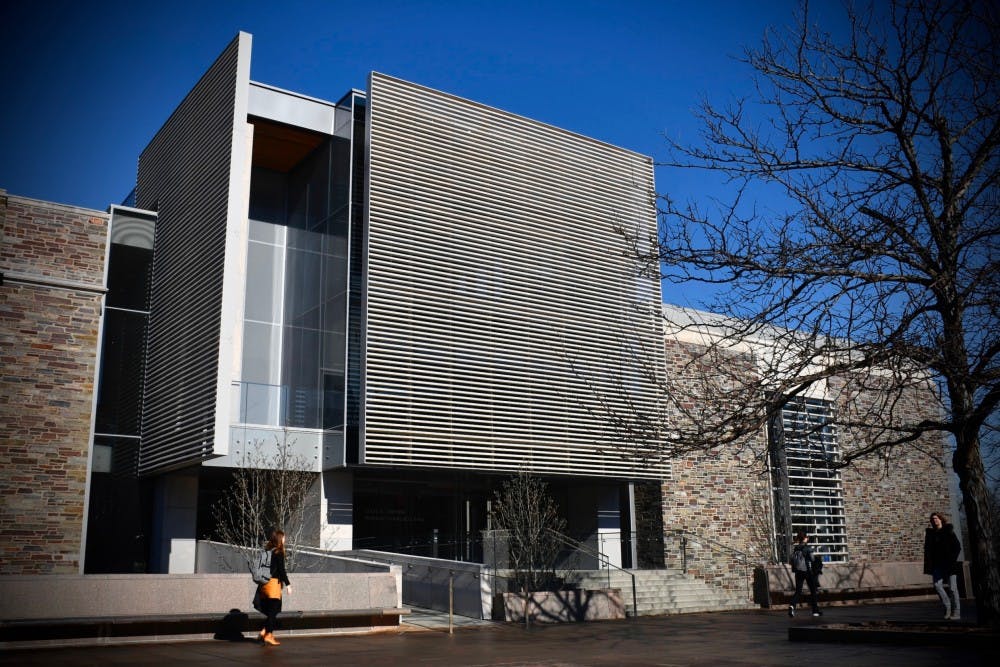In a letter sent earlier this week, over 100 first-year students urged the University to “do what it can” to bring first-year international students on campus this spring.
The Nov. 17 letter, addressed to President Christopher Eisgruber ’83, Vice President for Campus Life Rochelle Calhoun, and Dean of the College Jill Dolan, also asks that the University consider the unique challenges international first-year students have faced, such as time-zone differences and travel restrictions, in its decisionmaking.
“The challenges posed by large time zone differences, in some cases as significant as 18 hours, are multitudinous and ineludible,” the letter, signed by 113 students, reads. “As such, our community would like to make you aware of these issues specific to international first-years as you plan for the spring semester.”
Annie Xiong ’24, who currently lives in Shanghai, China, told The Daily Princetonian that the time difference prevents her from interacting with other students virtually and limits the time she can spend with her family.
“I usually wake up around noon and start doing work and try to find an hour or so during the day to go for a run,” Xiong said. “My classes all fall sometime between 9 p.m. – 1 a.m., so it is pretty normal for me to go to bed around three or four in the morning. However, this schedule is often interrupted when I have an early morning meeting (evening for EDT), and I end up having to sleep during the day.”
Sriyans Rauniyar ’24 from Nepal echoed those concerns.
“At times, I simply choose to sleep over assignments. I have missed quizzes for economics … Every international student is feeling secluded in one way or another,” he told the ‘Prince.’
Deputy University Spokesperson Michael Hotchkiss told the ‘Prince’ that the University recognizes it has been a particularly challenging semester for many international students.
“Faculty and staff have worked throughout the fall to address the time zone, technology, and other difficulties they have faced,” he wrote in a statement. “The Davis International Center remains focused on providing personalized support for our international students and scholars on these issues, as well as travel and visa restrictions that may affect their spring plans.”
In an Oct. 19 update, Eisgruber said he hoped the University could bring “significantly more” students back in the spring, compared to the roughly 250 undergraduates residing on campus this fall. He noted that the University was taking steps to increase its “capacity to support the return of residential education and on-campus research.”
For first-year international students, however, an invitation back will not guarantee campus residence. On July 24, U.S. Immigration and Customs Enforcement (ICE) issued guidance that requires arriving first-years to take at least one in-person or hybrid course to obtain a visa.
“Allowing us to come to campus for the spring semester with some in-person components—even if the University had to revert to the virtual format at some point—would enable us to obtain the necessary I-20 documentation to activate our SEVIS records, which is a prerequisite for legal entry to the United States as an alien student,” the student signatories wrote.

Furthermore, they worry that living outside the United States now will jeopardize their ability to secure jobs and internships in the future. U.S. law requires international students to complete at least one year of their studies before seeking off-campus employment.
For Rauniyar, obstacles extend beyond acquiring on-campus accommodation: the embassy nearest him is closed. Embassy closures have affected many students since the summer, and though the U.S. Department of State has begun a phased resumption of visa services, some facilities remain closed.
“I’ll most probably go to India and get my visa if the University invites us this spring,” Rauniyar said. For Xiong, the problem will be having to quarantine in a third country for 14 days before entering the U.S.
“But we will cross that bridge when we get there,” she said.
Still, both Xiong and Rauniyar are grateful. Referring to his fellow signatories, Rauniyar said he understood that “some sacrifices should come from our side,” but hoped for more accommodation on the University’s part.
“We acknowledge the many wonderful things that the University is doing for its international students, such as International Orientation — my IO leaders were extremely supportive and brought great energy to every meeting,” Xiong added. “However, we believe that more can be done. From not receiving our welcome packages and pre-read until November and being unable to attend Lawnparties at midnight, we often feel like an afterthought.”
In early August, before the University reversed course and adopted a fully-virtual fall, the Davis International Center announced that “a number of course components for first-year students” would be conducted in-person. At the time, University Spokesperson Ben Chang told the ‘Prince’ that the University expected to offer enough in-person options for first-year international students to comply with ICE policy.
Days prior, a group of students had sent a letter calling on the University to offer in-person classes or similar accommodations.
In response, Dolan apparently wrote that Eisgruber had “agreed to teach a course on ‘Free Speech and Inclusivity,’ which we’ll make sure any first-year international student who would like to register for it is able to take.”
Though Eisgruber will teach a small seminar on the same topic this spring, Hotchkiss did not explicitly comment on whether the University was considering in-person curricular offerings that would be available to all first-year international students.
In an email to one of the letter’s 113 signatories this week, Eisgruber wrote that the administration appreciates the unique challenges facing international students.
“We appreciate, too, the spirit and persistence that you and your classmates have shown in pursuing your education this fall,” he added. “As I indicated in my October letter, we are simultaneously monitoring the course of the pandemic and taking steps to increase our capacity to support the return of residential education.”
Head News Editor Zachary Shevin contributed reporting.








